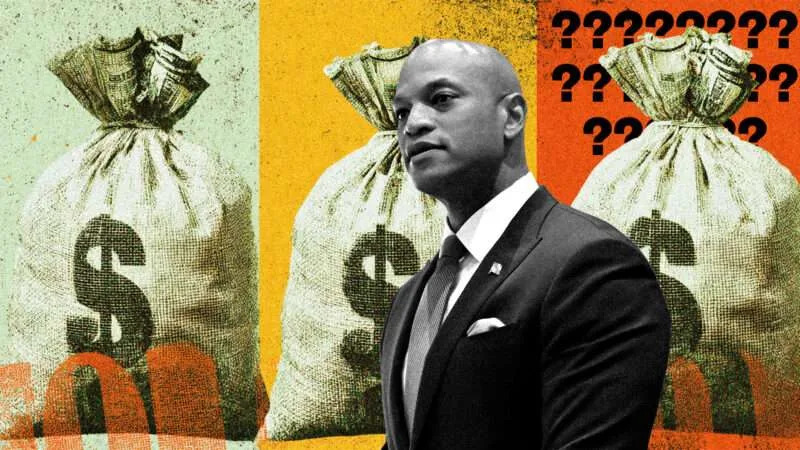
Maryland is currently experiencing a $3 billion budget shortfall, and filling the gap has been a top priority of Democratic Gov. Wes Moore.
As part of his campaign, Moore tasked state agencies, such as the Department of General Services (DGS), with identifying opportunities to "eliminate inefficiencies" by reviewing their portfolios of state-owned facilities. In June, DGS chose to relocate several state agencies to commercially leased spaces in Baltimore in a bid to save the state "$326 million in real estate savings over the next 20-25 years." Moore touted that this initiative, along with other cost-cutting measures, would reduce spending by nearly $400 million over the coming years, according to Maryland Matters.
However, a recently released audit from the Maryland State Legislature raises questions about Moore's cost-saving measures.
The audit revealed that the DGS lacked proof that relocating state agencies through $410.9 million in leases served the state's best interest. Specifically, auditors "question whether the decision to lease was the most cost-beneficial alternative."
Auditors also found that DGS didn't perform any "analysis of the cost-benefits of purchasing property instead of awarding leases to private entities," and that the leases awarded by DGS were "not always" transparently presented to the Board of Public Works (BPW).
Between July 2021 and July 2024, 94 percent of the leases the agency awarded were not published on the state's online procurement platform, as required by law. The DGS also did not structure lease solicitations following state regulations and with each agency's needs in mind, "resulting in change orders that significantly increased the cost of the leases."
The audit identifies 11 problems with DGS' process and procurement of the commercial leases. Among them, DGS reported only the first-year cost of the leases, rather than the full cost over the 10- to 15-year terms. This made the cost appear lower than they actually were, since the lease agreements signed by DGS included annual rate increases of 2 percent to 3 percent.
One example of this is the Department of the Environment, where auditors found that "DGS could not support numerous aspects of a $167.1 million lease renewal." The audit also noted that the state would cover the cost of renovations, resulting in an additional $12.6 million spent on rent over the 20-year lease term, along with an annual rent escalation rate of 3.45 percent.
A lease for the Maryland Department of Health, meanwhile, is expected to cost the state $277.9 million over the next 15 years, despite the current landlord having purchased the building for $7 million in 2016. DGS also could not provide documentation to show it considered current agency parking usage, projected telework adoption, or public transit use when determining a ratio of "1 parking spot for every 3 employees," resulting in $51.8 million in parking costs for five of the leases.
Other findings include $194.2 million in unused funds that DGS failed to deauthorize because the agency lacked a process for doing so.
Although the crux of DGS' announcement celebrating its cost-cutting measures revolves around these commercial leases, the audit found that DGS did not determine if the leases were set at the fair market rate, leaving auditors with "a lack of assurance that the leases were at or below market rates."
The audit includes several recommendations for DGS to enhance its processes and implement new systems to prevent repeating its mistakes, including increased documentation and detailed justification of its procurement efforts, transparent disclosure of costs, and providing "clear justification" when deviating from state procurement procedures. Auditors did recognize DGS' "agreement with our recommendations, and willingness to address the audit issues and implement appropriate corrective actions."
Utilizing the real estate market instead of investing in state-owned buildings was a sensible decision to reduce Maryland's budget hole. However, the Moore administration's inability to perform basic due diligence means that Maryland taxpayers will be held accountable for the government's incompetence.
The post Audit Finds $400 Million in Questionable Lease Spending After Maryland's Governor Bragged About Savings appeared first on Reason.com.








Comments